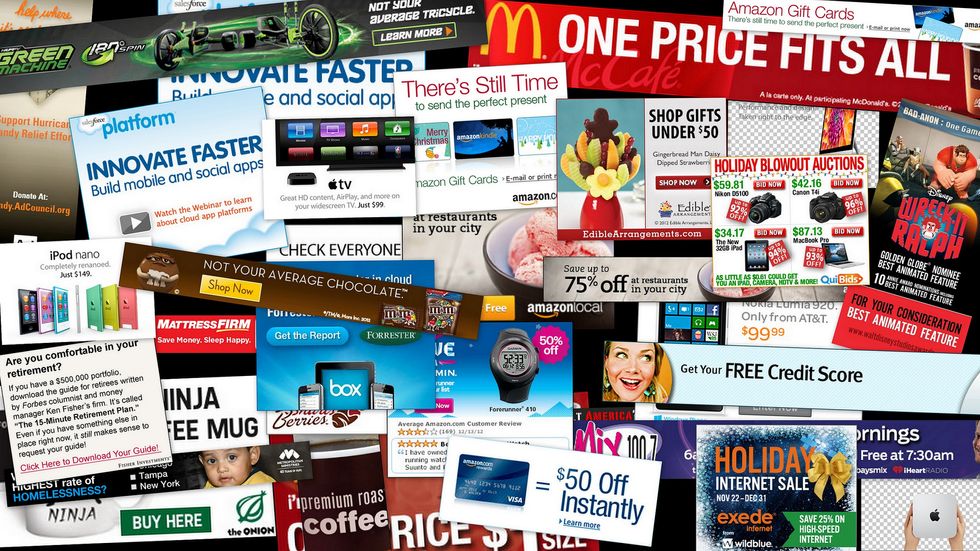However you prefer to spend your time online, it hasn't gone unnoticed that as soon as you type something into Google or Bing or generally any search engine on the Internet these days that you begin seeing advertisements for that same exact thing.
Usually it's pretty subtle: a similar website, maybe, or the same brand but different products. Maybe it's about a celebrity that's in the show you really like, or some other movie that you might be interested in.
Either way, it's generally pretty effective — mostly because you barely noticed it.
The ingenious marketing technique of subliminal advertising that we are familiar with today only really dates back to the rise of Coca-Cola products in movie theater concessions, believe it or not. Somehow it was discovered that showing a crispy and carbonated Coke beverage and buttery tub of large popcorn (or even the words "Coke" and "popcorn") in front of a crowded theater made people...hungry? There ended up being a 18.1% increase in Coke sales and a 57.8% increase in popcorn sales.
However simple this may have seemed...it was overwhelmingly successful.
Ads used to be sneaky, less noticeable, and geared toward the subconscious of the consumer.
But now?
Well, I wouldn't be the first person on Twitter that's been making jokes about how modern online ads are able to predict what we're thinking. It's become an online joke of sorts, along with the idea that FBI agents are watching us through out web cameras.
But the fact that there is now an online algorithm for everything I do online? That's creepy.
I can't even go online shopping for clothes, or stickers, or even pictures of Corgis without finding a Redbubble advertisement on Facebook the next time I log in — not just the website I was just scrolling through, but the exact product I had just looked at.
Thanks for thinking of me, but please: get out of my head.
People can claim all they want about how ingenious a marketing strategy it may seem, that consumers are now being able to be shown what they want before they even type it in or look it up, but I heartily disagree. No one wants to be reminded that everything online — our information, our interests, etc — is being recorded and processed for something of which we aren't entirely sure.
Maybe it is a simple advertising algorithm to be able to reach consumers in a more efficient way. However, it is incredibly unsettling that so much information is revealed through a simple search engine — and I can guarantee that it is not going to beneficially effect how online advertising is viewed by the public.
Yes, the Internet has a nearly infinite access to information and algorithms, but there is a difference between having that power and using it.
The users of the World Wide Web are still people, and their information and personal safety — both feeling safe and being safe — should not be compromised in the greater interests of corporate efficiency.








































